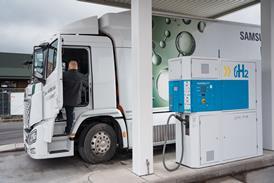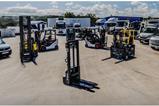Project RESPONSE (Robust Emergency Services Performing Operations in Electric) is a new initiative aimed at enhancing the efficiency of emergency service operations through zero-emission (ZE) technology. Funded by Innovate UK under the Net Zero Mobility programme, the project addresses challenges in developing comprehensive ZE emergency service planning and dispatch systems. Flexible Power Systems (FPS) will lead the project with support from Cenex.

FPS is developing a new platform based on its existing Operate architecture. Operate is data integration software that works with current fleet management systems, connecting information about power status to ensure efficient Charging and journey scheduling. It is currently used by commercial fleets to optimise electric van deployment, reducing operational costs and eliminating tailpipe carbon emissions.
For Project RESPONSE, FPS will explore how digital tools and artificial intelligence can enhance emergency dispatch systems for zero emission response vehicles. The goal is to create a co-pilot system that provides streamlined choices for human dispatchers, addressing challenges related to charging and range limitations.
The development stage of RESPONSE is supported by a user focus group comprising ‘blue light’ organisations from the UK and The Netherlands. Participating partners include NHS England, Southwest Police Service, Kent Police and Essex Police, and Ambulancezorg Nederland, representing all 25 regional ambulance services in the Netherlands.
Cenex will play a crucial role in supporting Project RESPONSE. Its experience in blue light stakeholder liaison, vehicle journey modeling, charging needs visualisation, and supply chain analysis will help identify user requirements for current dispatch systems and necessary adaptations for ZE vehicles. Through collaboration with industry partners, Project RESPONSE aims to advance ZE emergency services, maximising service efficiency and the benefits of ZE operations for fleets.
“Project RESPONSE offers an exciting opportunity to utilize our extensive experience in supporting emergency fleets and apply it to the development of zero-emission emergency service operations. With our deep understanding of vehicle technology and fleet operations, we are committed to maximising efficiency and ensuring the seamless integration of sustainable practices into emergency service operations,” says Dr Peter Speers, Principal Technical Specialist at Cenex.
“The electrification of emergency service vehicles presents significant challenges in the decarbonisation of transport. The complexities of assessing the correct vehicle to dispatch are myriad for the operator. We are proud to partner with Cenex to deliver this crucial service,” added Michael Ayres, Managing Director of FPS.


















